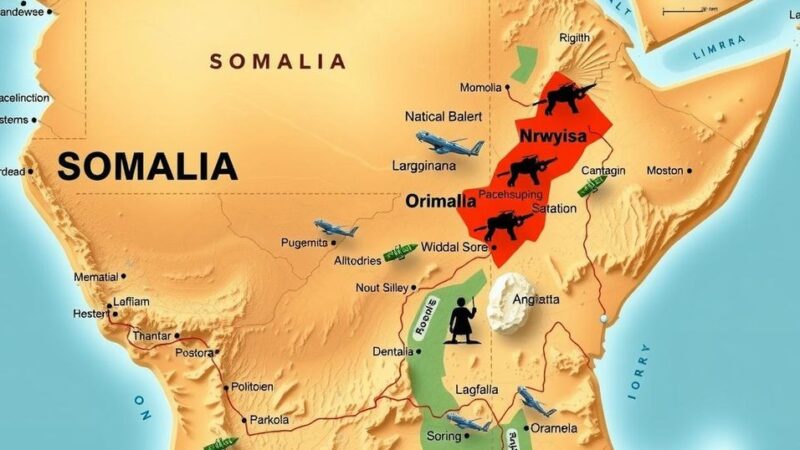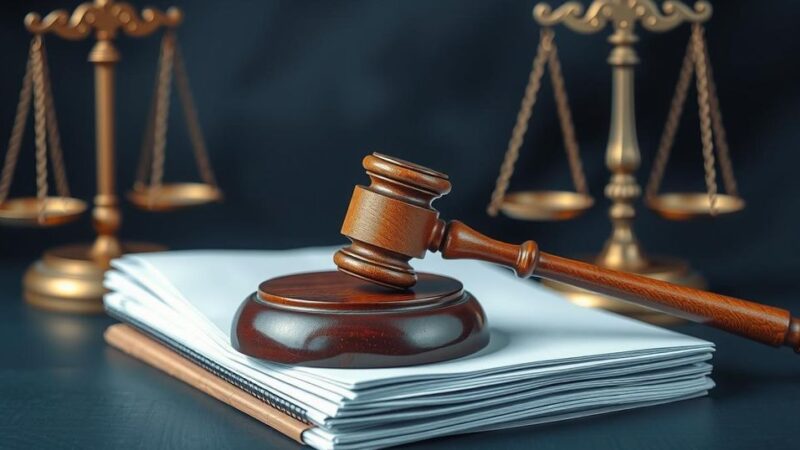Prominent Nigerians, including former public officials, expressed their fears about the decline of democracy in Nigeria during a colloquium. Key speakers, such as Bishop Matthew Kukah and Peter Obi, discussed systemic issues, the judiciary’s pressure, and the need for constitutional reform. While some highlighted the regression of democratic standards, others asserted progress, suggesting an ongoing journey toward effective governance.
Several prominent Nigerians, including former governors and public office holders, expressed concerns about the declining standards of democracy during a colloquium in Abuja. The event, celebrating the 60th birthday of Emeka Ihedioha, was chaired by former President Olusegun Obasanjo and attended by notable figures such as former Vice-President Atiku Abubakar and Peter Obi. The participants argued that Nigeria’s democratic system is failing to serve its citizens effectively, revealing various systemic issues.
In his keynote address, Bishop Matthew Kukah emphasized that Nigeria’s democracy predominantly benefits a select few, leading to significant pressure on the judiciary. He highlighted that the system inherited does not align with African realities and expressed concern over the implications of how politics operates in the country. Kukah urged a reevaluation of political practices, underscoring that democracy is a constant work in progress, requiring justice and fairness for all.
Peter Obi contested Kukah’s view, arguing that rather than being a work in progress, Nigeria’s democracy has regressed. Obi recounted experiences from his tenure as governor, noting a stark contrast between past and present political dynamics. He articulated his disillusionment with the current state of governance, stating, “Everything has been knocked down. Nothing works.”
Obasanjo remarked that the current political climate is a mere representation of democracy rather than true governance, pointing out a misalignment with African culture and realities. He articulated, “Democracy in Africa has failed because it’s not African; it didn’t have our culture and way of lives.”
Atiku reminisced about the challenges faced during Nigeria’s quest for democracy, offering praise for Ihedioha’s character despite political differences. He underscored the importance of loyalty and dedication among political leaders.
Aminu Tambuwal criticized the unconstitutional nature of recent political actions and underscored that democracy requires all actors to engage responsibly in order to thrive. He believed that the honest involvement of all stakeholders could restore the democratic process.
Chief Emeka Anyaoku advocated for a comprehensive review of the 1999 Constitution, stating that true federalism could help tackle various national issues. He expressed concern over maintaining Nigeria’s standing in the international community and contended that stable governance is essential for development.
Conversely, House of Representatives Speaker Tajudeen Abbas acknowledged the challenges Nigeria faces but asserted that the nation is making measurable progress towards democratic consolidation. He noted that, despite its imperfections, democracy in Nigeria is stabilizing, which is critical for the country’s growth and development.
In conclusion, the dialogue surrounding Nigeria’s democracy highlights significant concerns regarding its efficacy and alignment with the cultural realities of the country. While voices such as Bishop Kukah and Peter Obi emphasize criticism of the current system, others like Speaker Tajudeen Abbas present a more optimistic view of ongoing progress. The need for constitutional reform and responsible political behavior is echoed throughout the conversations, indicating a collective desire for improvement and accountability in governance. Ultimately, the discussions reveal both the challenges and the potential pathways for Nigeria to revitalize its democratic principles, thus fostering a better societal framework for all citizens.
Original Source: punchng.com






